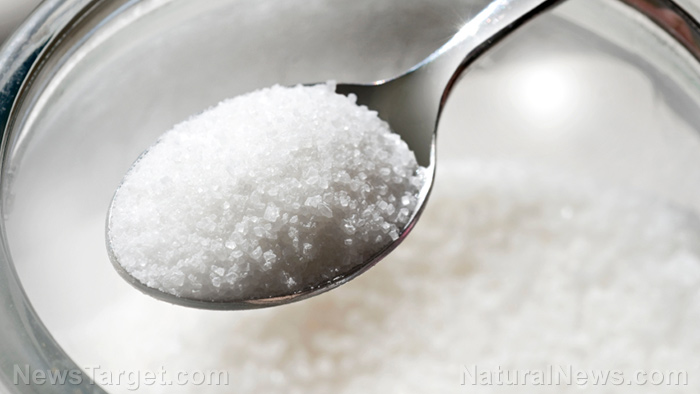
Monellin (Serendipity Berry) sources, health risks
Thursday, January 04, 2018 by Ralph Flores
http://www.naturalpedia.com/monellin-serendipity-berry-sources-health-risks.html

Monellin is a sweetener that is derived from the serendipity berry (Dioscoreophyllum cumminsii), a plant that is endemic to western Africa. It is noted to be 90,000 times sweeter than sucrose (table sugar) on a molar basis and is noted to have a sweetness that is described to be “intense and persistently sweet.” However, the protein is also described to have a “slow onset of sweetness and a lingering aftertaste.”
While initially thought as a carbohydrate, monellin is, in fact, a plant-derived protein along with thaumatin, brazzein, pentadin, mabinlin, miraculin, and neoculin. Along with the protein lysozyme, which is derived from animals, they form what is known as “sweet taste-modifying proteins.” However, they have no other shared characteristics (homology) in terms of structure or sequence. Monellin, like other sweet proteins, activates sweetness in a manner that does not require insulin. Thus, its potential for being an alternative for sugar-based sweeteners is highly explored.
An issue with using naturally-occurring monellin is that is has a low heat and acid resistance. When monellin is exposed to temperatures above 50°C, it loses its sweetness. Consequently, the sweetness of monellin is only expressed within the two to nine pH level range, with exposure to lower levels resulting in a loss of sweetness. Additionally, production of monellin is costly, as its plant of origin is difficult to cultivate.
Scientists have worked around these factors through synthesizing monellin to the single chain derivative MNEI.
Currently, monellin has no legal status from either the Food and Drug Administration (FDA) in the U.S. or the European Food Safety Authority (EFSA).

Harmful effects of monellin
As monellin is not yet approved as a sweetener in both the U.S. and the E.U., scientific literature that explore the adverse effects and probable toxicity of monellin in the human body are scarce.
However, a study published by researchers from the Sri Lakshmi Narayana Institute in India reported that because nonnutritive sweeteners (NNS) (another name for low-calorie sweeteners) do not have properly controlled studies, certain groups of people are susceptible to any adverse effects that it may cause – particularly pregnant and lactating women; children; and patients who suffer from diabetes, migraine, and epilepsy.
People who suffer from diabetes are advised to consume minimal amounts to prevent long-term harm that may arise from regular consumption of monellin and other sweeteners
Body systems harmed by monellin
Monellin may adversely affect people with existing conditions of diabetes, especially if they are heavily reliant on sweeteners to reduce calories. In addition to this, in vivo testing has indicated these may alter the gut microbiota, and could possibly cause glucose intolerance.
Where to learn more
Summary
Monellin is a natural sweetener extracted from the serendipity berry. The fruit is native to western Africa; therefore, the cost of producing monellin is relatively expensive. It one of the sweetest naturally-occurring food additives; its sweetness is described as intense and persistent, and is 90,000 times sweeter than table sugar.
It is a plant-based protein – as such, it is not metabolized in the body. This makes it a low-calorie alternative to sucrose-based sweeteners. However, controlled studies for the effects of monellin in humans are not yet fully explored – thus, making people with existing conditions susceptible to possible adverse effects.
Sources include:
JBC.org [PDF]
Tagged Under: Tags: monellin





